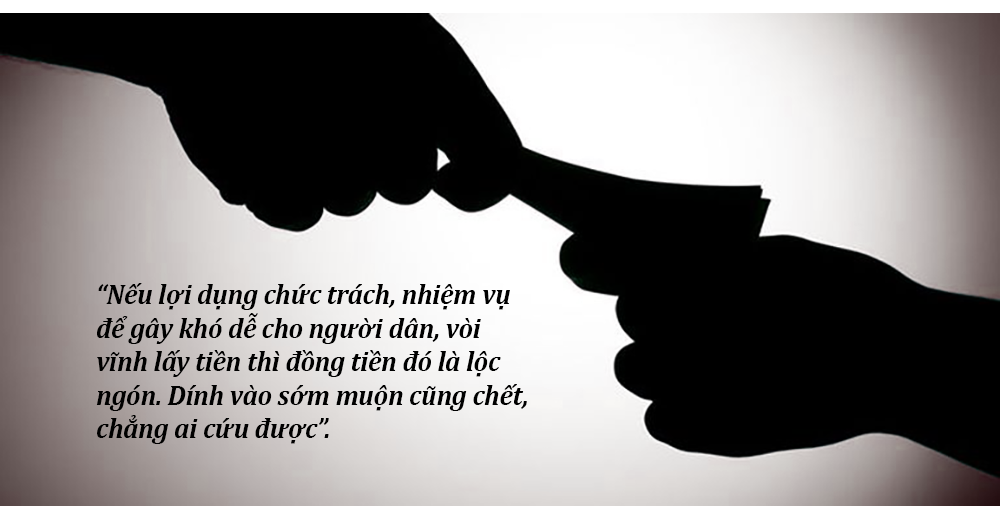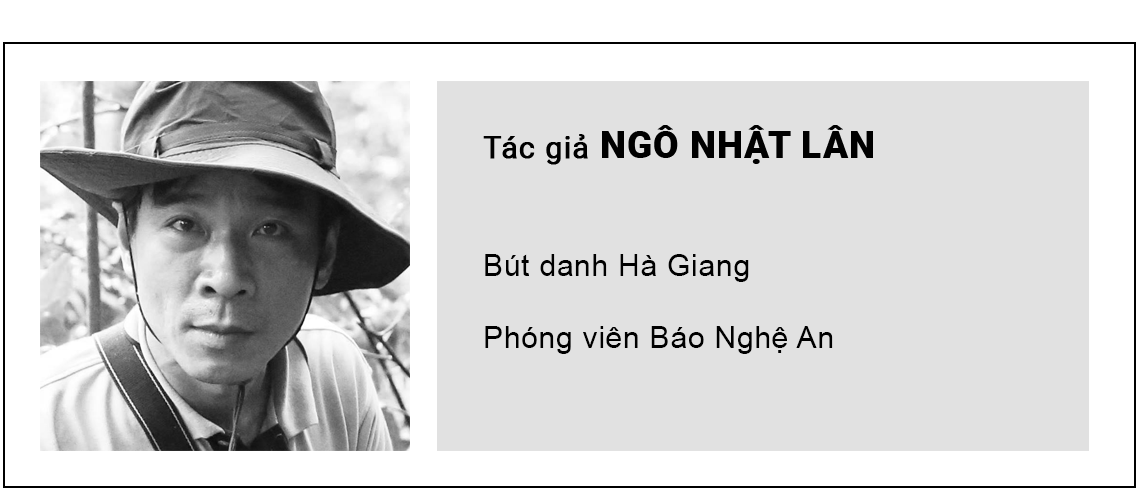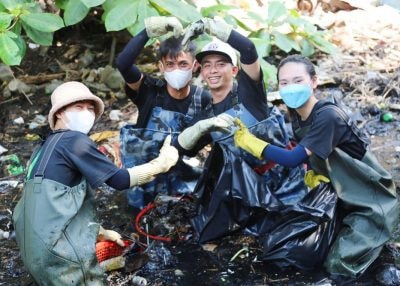
Going up to the semi-mountainous area of the province to ask about the work of granting land use right certificates to the people, the district leader answered with a sad face as if in a monologue: “There are many types of blessings. You have to know which are the lucky ones to avoid. If you eat the lucky ones, you will die…”.
Asked what happened? Still with a sad face, he replied: "In our district, there is a land officer who is involved in a scandal and has just been detained by the police to assist in the investigation...". Encourage him, hands have long fingers, short fingers, each family has only two children but not all parents can manage them. As civil servants, they understand the law and if they make a mistake, they have to take responsibility for themselves, who can they blame...
He nodded, knowing that but still felt sad. Then he confided that the field of land management in general, and the issuance of Land Use Rights Certificates in particular, is a difficult, sensitive job, full of temptations. Therefore, every week, every month, every quarter... the District People's Committee has continuously reminded and warned in meetings, and even in writing; the District Party Committee has also issued a separate Directive to correct the ethics of public servants doing this work. Personally, I am the leader in charge of the field, so I have been open with my colleagues many times. That land is the greatest asset of the people. That asset is shown in the Land Use Rights Certificate, so the people really need it. As a cadre, I have to follow the regulations, be enthusiastic so that the people can own their land. If the people thank me, then it is considered a useful bonus, no one will criticize. But taking advantage of the position and duties to make things difficult, extort money, then that money is a bonus. Getting involved will sooner or later lead to death, no one can save you. I thought if I reminded you a lot and opened up like that, people would listen, and I wouldn't get into trouble with the law. Who would have thought I would still get caught...

Listening to his heavy thoughts, I recounted the comments of Mr. Luu Binh Nhuong - Deputy Head of the National Assembly's Petition Committee, when participating in giving comments on revising the Land Law. That the 2013 Land Law has shortcomings, causing huge consequences in politics, economy, culture, and is one of the very favorable environments for officials and civil servants to degenerate and commit corrupt and negative acts. Mr. Nhuong stated: "Perhaps there is no greater corruption than land corruption and no greater waste than waste in land. Therefore, it is impossible not to quickly pass the Land Law (amended) because this is a very urgent issue".
He confirmed that the Land Law still has provisions that are not close to real life, and there are still shortcomings and inadequacies that lead to the things that the Deputy Head of the National Assembly's Petition Committee has commented on. For example, in his area, the work of granting Land Use Right Certificates is also facing difficulties. For example, when having to handle cases of records with unclear land use origins; land allocated beyond authority after July 1, 2004 to before July 1, 2014, but before being allocated land, there were houses and residential land in the locality; cases of exchanging land for other public works. Or cases of land allocated beyond authority, land use fees have been paid but the receipt is invalid, or the receipt is valid but has been lost, the land allocation agency no longer has records and books proving that land use fees have been paid... Therefore, he said: "There are many practical difficulties that need to be resolved through amending the Land Law".

But he concluded: “Through the incident of land officials in my district and some other districts being involved in the law, we can see that the most important key is still people. We must continue to pay attention to correcting public ethics, and we must do something to help officials see the value of their positions so that they do not dare to lose them. If we amend and perfect the law without improving public ethics, there will still be many officials who will get involved in the…fingerprints.”










